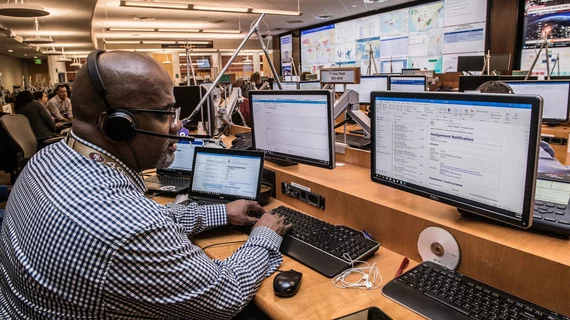AI patient monitoring included in proposed emergency-response system
U.S. Army researchers are calling for the creation of a national emergency network that would coordinate select digital health technologies, including AI, in fighting COVID-19 now and other public health crises later.
The team’s proposal for the initiative—which they’re calling NETCCN, for the National Emergency Tele-Critical Care Network—is running in the journal Telemedicine and e-Health.
Corresponding author Geoffrey Miller, MS, of the Army’s medical research and development command in Fort Detrick, Maryland, and colleagues base their recommendation on findings they made upon analyzing the relevant existing literature.
Specifically, the authors searched out studies on digital health technologies that have already proven effective in three spheres of epidemic containment and mitigation:
- supporting patients while limiting disease transmission,
- increasing healthcare providers’ infectious-emergency capacity and
- predicting and/or preventing future outbreaks.
Technologies rising to the fore in meeting those criteria included telemedicine and mobile care—for COVID-19 as well as routine care—plus tiered telementoring, telecritical care, robotics, and AI for monitoring vital signs and patient activity levels.
“COVID-19 has demonstrated the impact of a large-scale health emergency on the existing infrastructures,” Miller et al. conclude. “Short term, an approach to meeting this challenge is to adopt existing digital health technologies. Long term, developing a NETCCN may ensure that the necessary ecosystem is available to respond to future emergencies.”
In their discussion the authors add that sustaining such a digital health network would, both now and between crises, “allow for enhanced care provision, distribution and rapid deployment at scale to make our nation safer.”
The paper is available in full for free.

